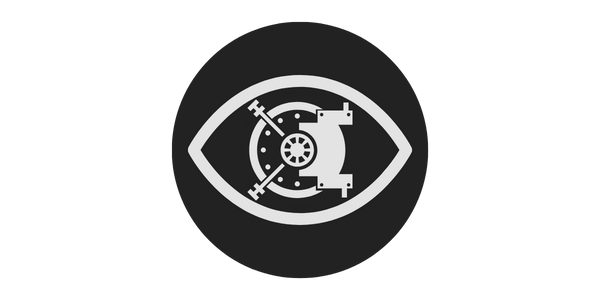Why Are People with ADHD So Emotional? Understanding Rejection Sensitive Dysphoria (RSD)
Russel SmithShare
Short on time? We get it—check the TL;DR at the bottom!
Introduction
Do you or someone you love experience overwhelming emotional reactions, especially to criticism or perceived rejection? If so, it might not just be “oversensitivity.” For those with ADHD, there’s a name for this: Rejection Sensitive Dysphoria (RSD). This blog dives deep into why people with ADHD feel emotions so intensely, how RSD plays a role, and what both individuals and their loved ones can do to navigate these challenges. Whether you’ve just heard about RSD, suspect you might have it, or want to support a partner better, this guide is for you.
What Is Rejection Sensitive Dysphoria (RSD)?
Rejection Sensitive Dysphoria is an intense emotional response to perceived criticism, rejection, or failure. Unlike typical sensitivity, RSD isn’t just “feeling bad” about something—it’s an overwhelming reaction that can include emotional pain, anger, or shame. For many people with ADHD, RSD is a hidden struggle tied closely to their neurobiology.
How Does RSD Differ from Other Emotional Challenges?
- Not a Mood Disorder: RSD is triggered by specific events (e.g., criticism) rather than being a persistent state like anxiety or depression.
- Physiological Roots: RSD stems from differences in dopamine and norepinephrine regulation, common in ADHD brains.
- Intensity: People with RSD often describe feeling crushed or devastated by rejection, even when it’s not intentional.
Why Are People with ADHD So Emotionally Reactive?
People with ADHD often notice subtle cues—like changes in tone or body language—making them seem emotionally astute. However, this heightened awareness is paired with a brain that struggles to regulate emotional responses. The result? Emotional reactions can feel outsized or even explosive.
Some reasons include:
- Hyperfocus on Perceived Judgment: People with ADHD may overanalyze situations, looking for signs of criticism or rejection.
- Neurological Differences: Dopamine dysregulation impacts how the brain processes rewards, rejection, and emotional balance.
- Difficulty Shifting Attention: Once emotions take over, it’s harder for someone with ADHD to “move on” or de-escalate.
Do You Have RSD? Signs to Look Out For
- You often feel deeply hurt by criticism, even when it’s constructive.
- You avoid certain situations to prevent rejection or failure.
- Small conflicts feel emotionally devastating.
- You struggle to calm down after emotional triggers.
- You feel embarrassed or ashamed for overreacting but don’t know how to stop.
How Does RSD Affect Relationships?
RSD can create challenges for people with ADHD and their partners. Miscommunications may lead to arguments or misunderstandings that feel disproportionate to the situation. For example, a casual comment might be misinterpreted as criticism, resulting in hurt feelings or emotional outbursts.
Tips for Navigating Relationships Affected by RSD:
-
For Individuals with RSD:
- Communicate your needs to your partner. Let them know that you may overreact to rejection but that it’s not intentional.
- Practice mindfulness to recognize emotional triggers early.
- Seek therapy or coaching to learn coping mechanisms.
-
For Partners:
- Avoid minimizing their feelings or saying, “You’re overreacting.” Instead, validate their emotions and gently redirect.
- Use clear and positive language to avoid misinterpretation.
- Offer reassurance after emotional events to help rebuild connection and trust.
How to Cope with RSD
While there’s no “cure” for RSD, there are ways to manage it effectively:
- Identify Triggers: Keep a journal of situations that evoke strong emotional reactions.
- Reframe Criticism: Work with a therapist to view feedback as an opportunity for growth rather than rejection.
- Use ADHD-Friendly Tools: Systems like PeakFlowSpace™ can help organize emotions, track patterns, and promote mindfulness.
- Medication or Therapy: For some, ADHD medications and cognitive-behavioral therapy (CBT) provide significant relief.
For Partners: How You Can Help
Supporting a loved one with RSD isn’t always easy, but small changes can make a big difference:
- Educate yourself about ADHD and RSD to build empathy.
- Stay patient and avoid taking emotional reactions personally.
- Create a safe space for open communication, allowing them to express how they feel without fear of judgment.
TL;DR: The Key Takeaways
- Rejection Sensitive Dysphoria (RSD) is a common but lesser-known aspect of ADHD, causing intense emotional reactions to perceived rejection or criticism.
- People with ADHD may seem overly emotional because their brains are wired to notice subtle cues and struggle with emotional regulation.
- RSD impacts relationships, but open communication and understanding can help both individuals and their partners navigate these challenges.
- Strategies like mindfulness, therapy, and ADHD-specific tools (like PeakFlowSpace™) can make managing RSD easier.
Why PeakFlowSpace™ Works for This
As ADHD creators, we understand the emotional challenges of RSD. Our Notion-based ADHD Life Management System includes tools like:
- Mindset Mastery: Helps reframe rejection and promotes emotional resilience.
- Daily Routines Log: Tracks emotional triggers and builds mindfulness habits.
- Conflict Reflections: Provides space to process emotional events and plan better responses.
With PeakFlowSpace™, you’ll have everything you need to turn emotional overwhelm into a path for growth and self-discovery—without recurring costs or app overload.

